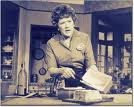
"You mix it with your love and emotion to create magic. Through cooking, you raise your spiritual level and balance yourself in a world that is materialistic." Laura Esqiuvel, Like Water for Chocolate
Everyone has a favorite room in their house. Mine is the kitchen, though, it wasn't always so. Several lifetimes ago, as I approached my wedding day, my then-future husband began suggesting that perhaps I should be spending time with my mother learning how to cook. I brushed off his increasing insistence, saying, "If I can read, I can cook."
 After we'd been married for a few months, he confessed his parents had been teasing him, telling him he would starve once we were married since I didn't know how to cook. "Just a pretty face," my future father-in-law had said, "That isn't going to keep you from getting hungry."
After we'd been married for a few months, he confessed his parents had been teasing him, telling him he would starve once we were married since I didn't know how to cook. "Just a pretty face," my future father-in-law had said, "That isn't going to keep you from getting hungry."I must admit for the first few months of our marriage we did exist mostly on love. My meals were definitely substandard, but dear Will quickly learned not to tell me so. Ah, discretion, another secret of a long, happy marriage. But that's a subject for another time…
Gradually, my skills improved until even my in-laws, especially my father-in-law, looked forward to coming to Sunday dinners at our house. Still, it wasn't until I returned to work that I truly realized my kitchen as a refuge and my spiritual place. I'd come home frazzled by all the work politics and problems, too tired to cook, I'd think, until I started to prepare the food.
I began to notice that by the time dinner was ready to put on the table, a smoothing of my frayed nerves had occurred. The simple task of making a salad, peeling potatoes, or stirring the spaghetti sauce became the respite I needed to reflect on the day and my life.
A few years ago, I bought a small book entitled The Mindful Cook by Isaac Cronin. Cronin says "you can nourish your soul, develop your mind, and eat well at the same time!" That sentence, as well as, the rest of this neat tome gave me a new perspective on the everyday task of time in the kitchen.
The idea of combining those three elements into necessary tasks intrigued me. And the author gave what I already knew a voice and a mindfulness I didn't realize was possible - that by intentionally putting myself in a spiritual frame of mind, my kitchen would be even more the place where I could always retreat and find harmony.
Here's some tips on how you, too, can bring mindfulness to your cooking:
A few years ago, I bought a small book entitled The Mindful Cook by Isaac Cronin. Cronin says "you can nourish your soul, develop your mind, and eat well at the same time!" That sentence, as well as, the rest of this neat tome gave me a new perspective on the everyday task of time in the kitchen.
The idea of combining those three elements into necessary tasks intrigued me. And the author gave what I already knew a voice and a mindfulness I didn't realize was possible - that by intentionally putting myself in a spiritual frame of mind, my kitchen would be even more the place where I could always retreat and find harmony.
Here's some tips on how you, too, can bring mindfulness to your cooking:
- Make the kitchen uniquely yours by adding a color you especially like. My favorite is teal and the backsplash is the area I see most.
- Put favorite pictures or paintings where you can view them while you're preparing food. I've placed pictures of my two sets of grandchildren, over my stove so I can send them my love, thoughts, and prayers. Somehow, I know those thoughts do fly across the miles to kiss them even though my positive regard may not be consciously received.
- Be fully present by centering on one task at a time. Multitasking may be in vogue, but it's definitely overrated and more stressful!
- Mentally quiet yourself so you can really see the color of deep red summer tomatoes, smell the pungent aroma of rosemary, and feel the texture of papery parchment covered onions.
- Be good to yourself even if it's a meal for one. In the early Julia Child TV shows (I'm talking black and white here, at least at my house), once the meal was ready, she sat down alone, wine glass in hand, to eat and savor what she'd prepared.






